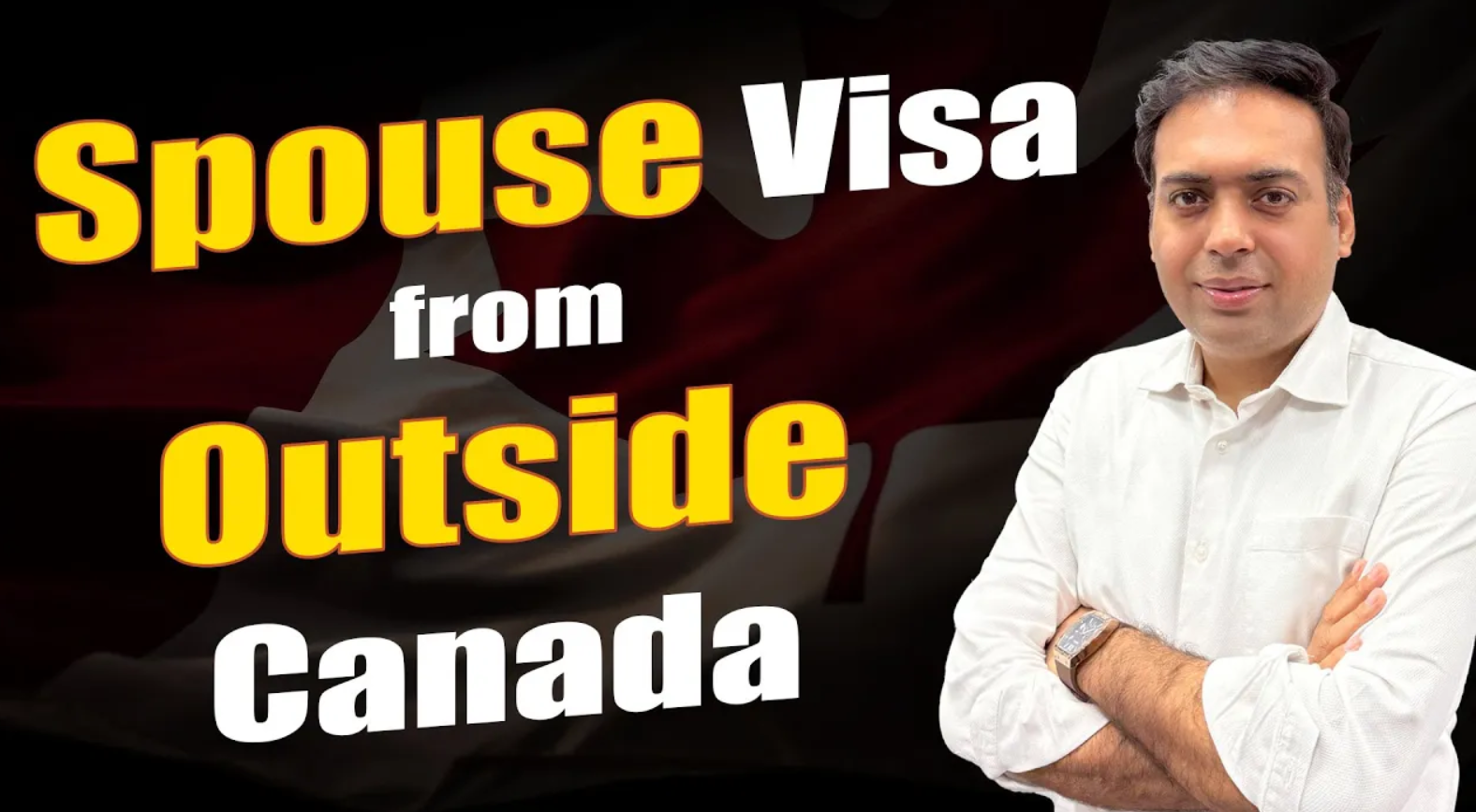Table of Contents
ToggleSpouse Open Work Permit from Outside Canada – Complete Guide 2025

Applying for a Spouse Open Work Permit (SOWP) from outside Canada can be overwhelming, especially with frequent refusals due to financial capacity issues or incomplete documentation. Whether you are applying as a fresh case or reapplying after refusal, understanding the eligibility criteria, financial requirements, and correct application process is crucial.
In this guide, Globexa Immigration explains everything you need to know about applying for a spouse visa from outside Canada.
1. Who Can Apply for a Spouse Open Work Permit (SOWP) from Outside Canada?
There are two main pathways for eligibility:
a) Based on Study in Canada
If your spouse (husband or wife) is pursuing higher education in Canada, you may be eligible for SOWP.
The student must be enrolled in a two-year master’s degree program (minimum 16 months).
The program could be MBA, Master of Management, or any other master’s degree.
You can apply for the spouse visa while your partner is studying, and even the entire family (spouse + children) can travel together.
Important Requirement: Proof of a genuine marriage and sufficient old funds must be submitted.
b) Based on Work Permit in Canada
If your spouse holds or is applying for a Canadian work permit, you may also be eligible.
A minimum 16-month work permit is required (LMIA-based closed work permit or Post-Graduate Work Permit).
If your spouse is applying for a PGWP or LMIA-based permit, you can apply for SOWP alongside their application.
Eligible jobs should fall under TEER 0, 1, 2, or 3 categories. For TEER 2 & 3, only specific NOC codes are acceptable.
While part-time jobs are not explicitly disqualified, it is strongly recommended that the spouse holds a full-time position to strengthen the application.
2. Key Documents Required
When applying for a spouse open work permit, you will need:
Job offer letter of the primary applicant (if on work permit).
Payslips (2–3 months).
Job reference letter (explaining responsibilities, working hours, and employment duration).
Proof of enrollment and official transcripts (if applying based on study).
Marriage certificate and genuine relationship proof (photos, rituals, legal documents).
Sufficient financial proof (bank statements, fixed deposits, GIC, etc.).
3. Financial Capacity – The Most Crucial Factor
One of the main reasons for refusal is not meeting financial requirements or showing funds improperly.
Minimum Funds Required
Primary applicant (student or worker): CAD $23,000
Spouse added: +CAD $6,000 (≈ $29,000 total for a couple)
One child: +CAD $6,000 (≈ $36,000 total for a family of three)
Two children: +CAD $7,000 (≈ $43,000 total for a family of four)
👉 Even if some family members are already in Canada, you must show proof of funds for the entire family, not just the applicant outside Canada.
Why Old Funds Are Important
Visa officers carefully check bank transaction history. If you only show a recent balance certificate without transaction history, your application may be refused.
Maintain funds at least 4–6 months old.
Avoid sudden large deposits or withdrawals.
Keep transactions clean and routine (salary deposits, normal spending).
4. Best Ways to Show Funds
Savings Account: Best option if funds are old and account shows consistent transactions.
Fixed Deposits (FDs): Good option if done gradually over time with genuine income.
Guaranteed Investment Certificate (GIC): Highly recommended, especially for applicants from SDS countries like India. GICs are stronger proof compared to recent FDs or balance certificates.
Hello Canada Account (ICICI Bank): Another great tool for showing funds.
Avoid showing funds in mutual funds, shares, property, or vehicles. These are not considered liquid funds and don’t count toward financial capacity.
5. Common Mistakes That Lead to Refusal
Showing only recent funds or large last-minute deposits.
Submitting balance certificates without transaction history.
Using joint accounts with parents (primary holder is often considered the parent, not you).
Relying on sponsorship affidavits from parents (high refusal risk).
Submitting unofficial transcripts instead of official ones (study-based cases).
Applying without enough funds for the entire family.
6. When Should You Apply?
Best practice: Apply along with the primary applicant’s application (study visa, PGWP, or LMIA-based work permit).
If refused, don’t panic—you can reapply with corrected financial documents and stronger proof.
Avoid applying as a single applicant while being married, as this may raise red flags.
7. Key Takeaways from 2025 Trends
Refusal rates are higher compared to 2023, as IRCC is reducing temporary resident numbers.
Visa officers now give detailed refusal notes, often pointing to weak financial documentation.
To minimize risk, ensure funds are old, consistent, and well-documented.
Always prepare finances months before applying—this cannot be fixed at the last minute.
Final Words
Applying for a Spouse Open Work Permit from outside Canada requires strong documentation, especially around financial capacity. At Globexa Immigration, we recommend applying together as a family with clear proof of funds, genuine relationship documents, and official transcripts or job details.
Even if refusals happen, reapplication with the right approach often results in approval.
If you are planning to apply for a spouse visa, study visa with family, PGWP, SOWP extension, or PR, our experts at Globexa Immigration can guide you through the entire process and maximize your chances of success.


